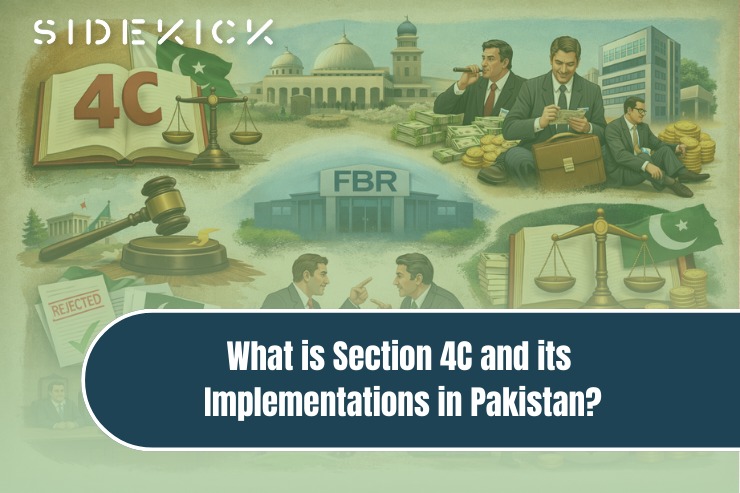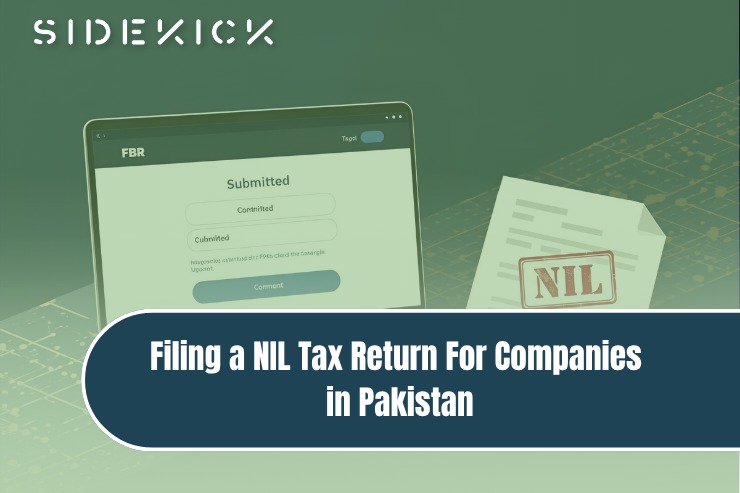Establishing an NGO in Pakistan functions as an honorable initiative to solve Pakistan’s cultural, environmental, and social problems. The official registration process establishes operational efficiency and compliance for NGOs in Pakistan. This guide presents all the procedural information needed to register an NGO in Pakistan.
What is an NGO?
An independent non-profit organization (NGO) is a self-governing body. Pakistani NGO activities focus on improving educational services and conducting health initiatives, human rights protection, and environmental protection operations. Entities managing NGO registration fulfill their tasks as trust, societies, and non-profit companies.
Why Register an NGO in Pakistan?
The reason to register an NGO in Pakistan is not just a legal requirement but comes with high benefits as well.
- Functioning under Pakistani law – As such, the NGO can function under the law.
- The credibility – Raises the faith of donors, partners, and beneficiaries.
- Only NGOs registered in the country can apply for Local and International funding opportunities.
- Tax Exemption: This includes tax exemptions under Pakistan laws for registered NGOs.
Types of NGO Structures in Pakistan
Before beginning the registration process, the legal form that your NGO will take should be understood:
Trust
- Governing Law: The Trusts Act, 1882
- Purpose: Holds assets for charitable causes, such as education, poverty alleviation, or healthcare.
- Registration Authority: Provincial Registrar of Trusts
Society
- Governing Law: Societies Registration Act 1860.
- Purpose: Established for literary, scientific, fine arts, or charitable activities.
- Registration Authority: Provincial Registrar of Societies
Non-Profit Company
- Governing law: For non-profit companies, it exists through Article 42 of the Companies Act, 2017, which previously used the Companies Ordinance, 1984.
- Purpose: Promotes commerce, arts, science, religion, and charity with a corporate structure.
- Registration Authority: Securities and Exchange Commission of Pakistan (SECP)
For more information on these laws, visit here.
Not Sure How to Register Your NGO?
Get in Touch
Fill out the form below, and we will be in touch shortly.
Step-by-Step Registration Process
The registration process varies based on the legal framework you choose. Below are the detailed steps for each major pathway:
Registration Under Section 42 (SECP)
Name Reservation
- Obtain the reservation of your NGO’s name by filing up to three proposed names on SECP’s EZfile Portal.
- Name Reservation must fit in with your NGOs objectives and mission statement.
- Approval is usually given for a name in 3 to 5 working days.
Paperwork
Provide essential documents, including;
- Memorandum and Articles of Association: The MOA and AOA outline your NGOs purpose, organizational structure, and guidelines on operational procedure.
- CNICs of the Promoters/Directors: Photocopies of the promoters and directors’ national identity cards.
- Affidavits and CVs: Through sworn statements, the promoters declare their intended role and provide detailed resumes.
- Fee Payment: Pay the fee for the name reservation and license application.
Application Submission
Fill out Form APP-3 and attach all supporting documents with the same. Applications shall either be submitted physically or submitted through the portal provided by SECP.
Review Process
The SECP reviews the application to ensure that all the objectives of your NGO are legal and in the interest of the public. They may request more information or clarification.
Incorporation and Certification
After successful approval from the SECP, the organization will issue a Certificate of Incorporation to the non-profit. The FBR registration allows your NGO to apply for tax exemptions based on the provisions of the Income Tax Ordinance, 2001.
Registration Under the Societies Act, 1860
Meet Membership Requirements
Make sure that there are at least 20 members in your organization, and there should be a minimum of 7 office bearers (President, Secretary, Treasurer).
Prepare Documentation
The following documents are needed:
- The two signed copies of the MOA and AOA.
- Valid and attested copies of CNICs of the Chairman, all office bearers, and general members.
- Minutes of the founding meeting.
- Proof of a commercial office address (e.g., lease agreement).
Fee Payment
The registration fee of PKR 500 is to be deposited in the designated government account (National Bank of Pakistan).
Application Submission
You must submit your application to the Registrar of Joint Stock Companies in your district. The registrar checks the documents and may require more information before approval is given.
Compliance Requirements
Once registered, your corporation NGO must file an annual report and audited financial statement to maintain its corporate NGO status.
Registration of International NGOs (INGOs)
Eligibility Requirements
Although entry should be minimal, the INGO has to be legally registered in its home country, and its purposes should align with welfare, development, or humanitarian assistance.
Document Submission
Required documents include:
- Registration certificate from the home country.
- Project proposals and work plans.
- Audited financial reports.
- Police clearance certificates for key personnel.
Application Process
They apply through the provincial Social Welfare Department. Approval may take time depending on the kind of activity proposed, and the application undergoes rigorous scrutiny.
Post-Registration Compliance
Annual Audits
Regulatory authorities must receive audited Financial statements from these NGOs yearly. Failure to do so could result in the suspension or cancellation of the license.
Tax Obligations
- You must get a national tax number (NTN) from the FBR.
- Seek tax exemptions under Section 2(36) of Income Tax Ordinance 2001.
Reporting
They should regularly prepare progress reports, project updates, and up-to-date lists of office bearers for their respective authorities.
Common Challenges and Solutions
Bureaucratic Delays
Incomplete documentation and inefficiencies in procedures can cause delays. Make sure your application is completed, and check with the authorities often.
Funding Challenges
NGOs registered under Section 42 often have transparent corporate structures, which makes them more likely to attract international donors.
Regulatory Changes
Consult legal experts or subscribe to regulatory bodies’ updates to be updated on changes to NGO regulations.
Benefits of Registering Your NGO
- Legal Recognition: It means that your organization will be legally free without interference from any entity.
- Tax Exemptions: It provides an exemption from taxation to your NGO.
- Funding Access: This increases your funding access and credibility and allows local and international funding entrance.
Simplify NGO Registration with Sidekick
NGO registration is an overwhelming process; however, it does not have to be!, Sidekick offers an end-to-end yet customized solution that meets your organization’s requirements. We select the correct legal framework, documentation, structure, and project operation.
We meet SECP, FBR, and provincial authorities’ compliance criteria, thereby minimizing delay and providing you with maximum chances of approval. Sidekick is there every step of the way, whether you want tax exemptions, the preparation for an audit, or funding advice. We can take the stress out of registration so you can focus on changing the world!
Conclusion
Achieving your social impact goals depends on the registration process of an NGO within Pakistan. Your organization can succeed by choosing a suitable legal structure, following the mentioned procedures, and fulfilling all compliance obligations. Seeking support from a lawyer provides the best solution since lawyers help reduce complications and regulatory issues.







